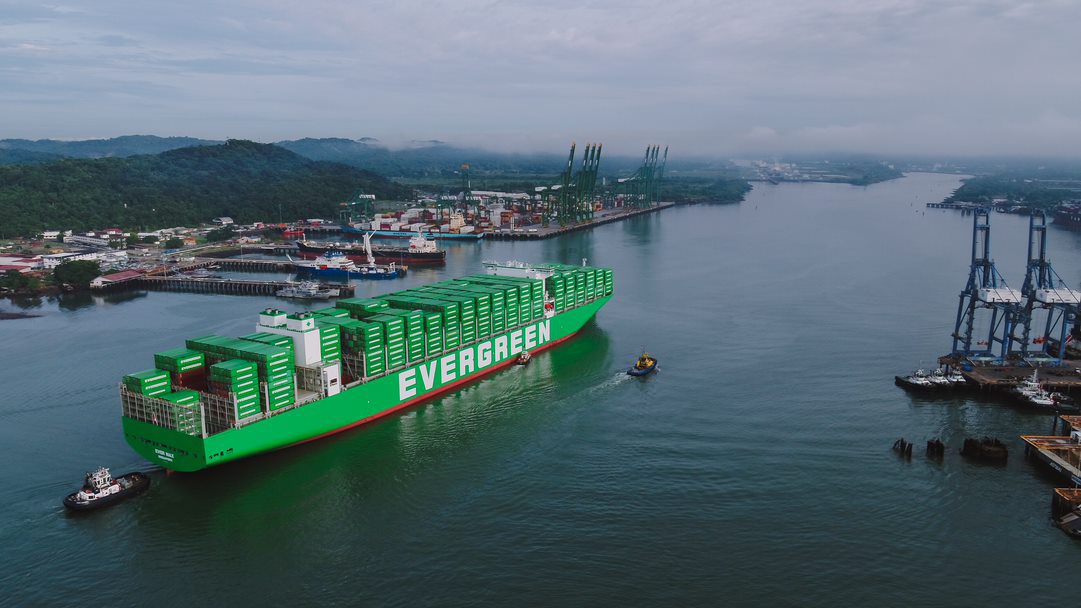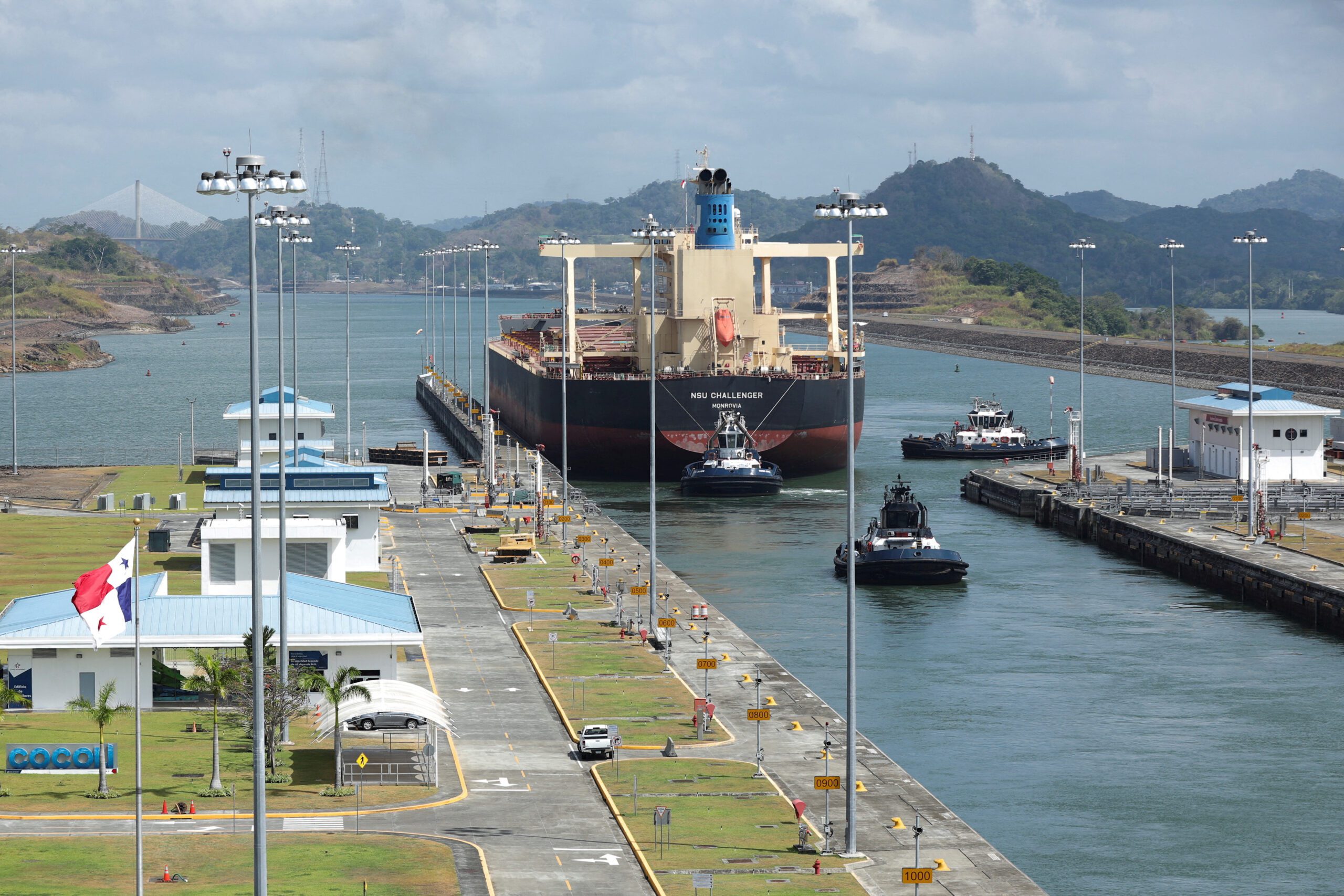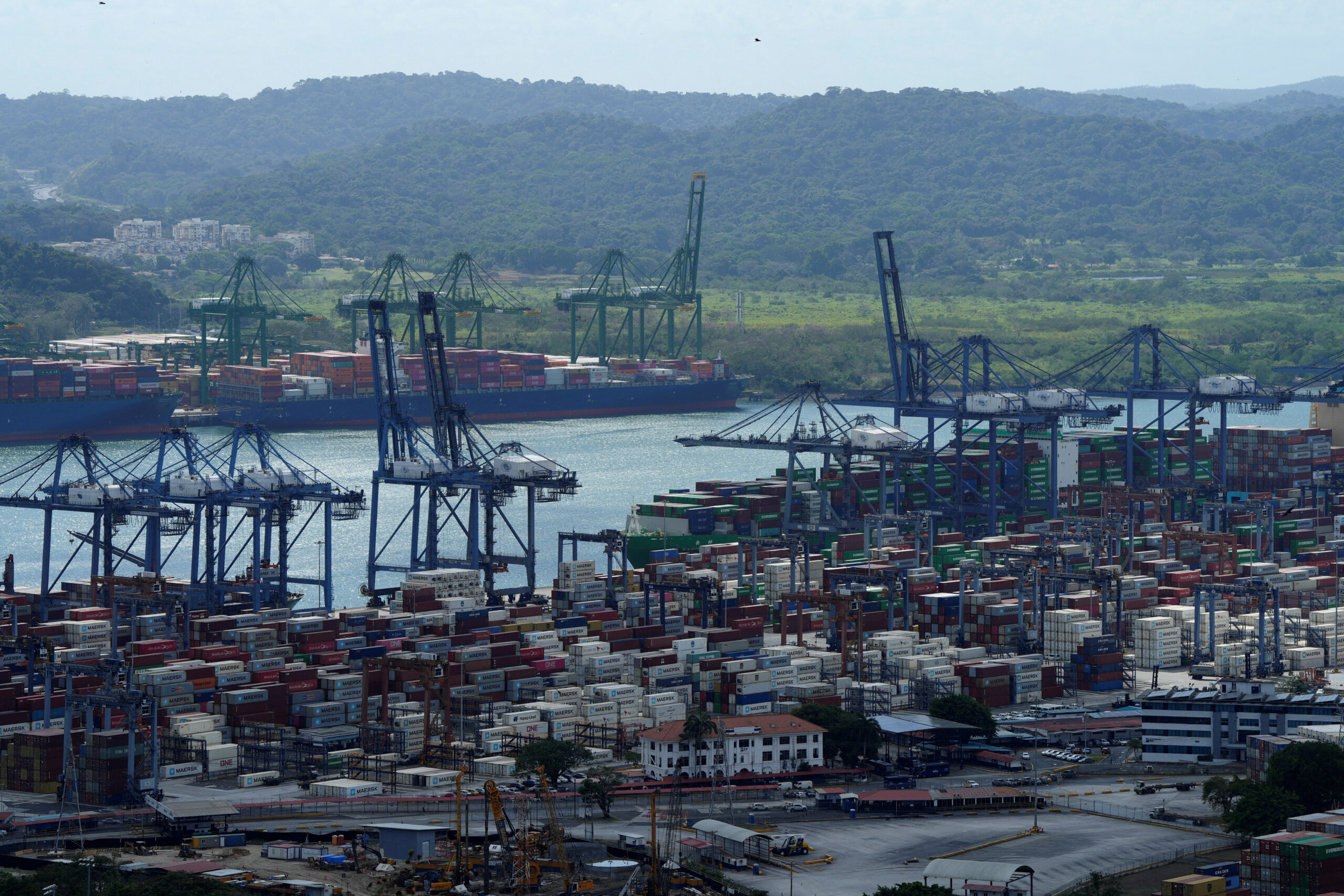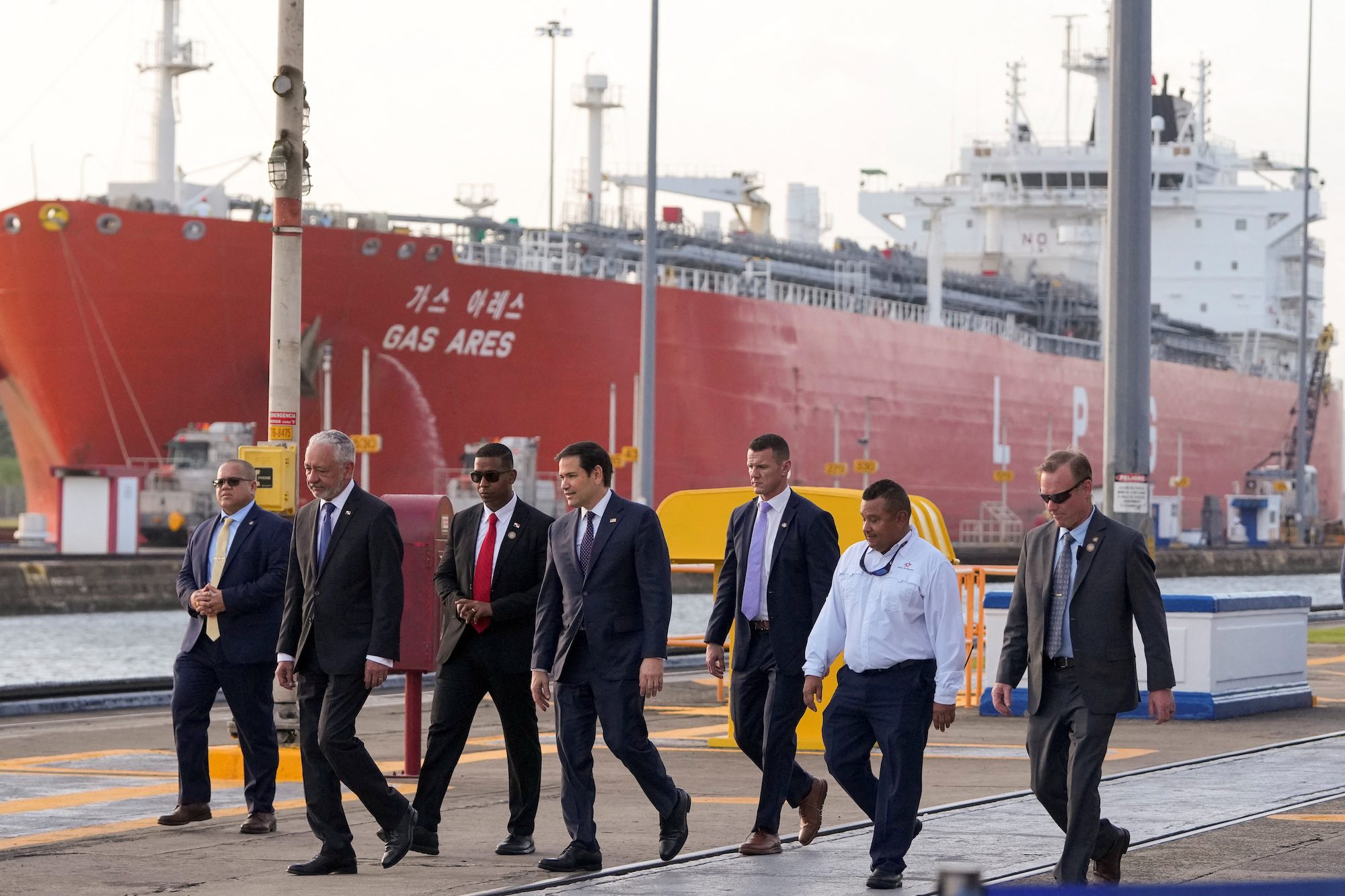By Ian Putzger Americas correspondent (The Loadstar) –
Rising water levels have restored transits through the Panama Canal, but the canal authority is also looking into how a land bridge could move even more cargo across the isthmus.
Shipping, however, has not been very keen on this scenario.
ACP administrator Ricaurte Vasquez Morales recently unveiled a vision to boost the canal’s capacity by 5m containers a year by 2045, up from a comparatively modest 8.3m today – by moving boxes overland.
He said that the land connection target operators of ULCVs that are too large to transit the canal.
It would also be a “valve” to help cope with any recurrence of the drought that seriously hobbled transits in the final months of 2023 and lasted into the spring. In January, only 22 ships were permitted to transit each day, and ACP indicated this might have to be reduced to 18. Normally 36-38 ships pass through the canal each day.
The authority is seeking $1.2bn to $1.4bn in funding to develop the land bridge idea.
However, Maersk was the only carrier that embraced the concept on a sustained basis between January and May. The line dropped the port of Cartagena from its OC1 service and unloaded containers at Balboa for rail transit to Manzanillo to catch sailings to Philadelphia and Charleston.
Maersk to Implement ‘Land Bridge’ to Bypass Drought-Hit Panama Canal
Other carriers were sceptical. While the land bridge offered faster transits from South-east Asia and Oceania to US east coast ports than the route around the Cape of Good Hope, it added around $2,000 in costs.
One industry executive, who has worked at lines as well as terminal operators, commented: “You can’t beat the economics of a ship, especially if you have a discharge and a load, and here you’d have another discharge and another load. The economics will kill you.”
Moreover, he added, it was not viable to move empty containers to Asia using a land bridge because of the cost, and moving them over Europe would result in imbalances.
“If a lock broke and the canal had to shut down for a year, that would be a different matter; but under normal circumstances, a land bridge doesn’t work,” he said.
Opposition to a land bridge will not be met with delight in Mexico, where the rise in traffic has brought back plans to revive the ‘Tehuantepec corridor’, a rail link to connect the ports of Veracruz and Coatzacoalcos at the narrowest distance between Mexico’s Pacific and Gulf coasts.
Meanwhile, the ACP has another plan to ensure the canal’s long-term viability in the face of future droughts. It is proposing a new reservoir and dam to supplement the water pumped into the canal from Gatun Lake. The project, estimated to cost $1.6bn, would supposedly boost the canal’s capacity by an additional 12 or 13 transits a day.
The Loadstar is known at the highest levels of logistics and supply chain management as one of the best sources of influential analysis and commentary.
Editorial Standards · Corrections · About gCaptain

 Join The Club
Join The Club











